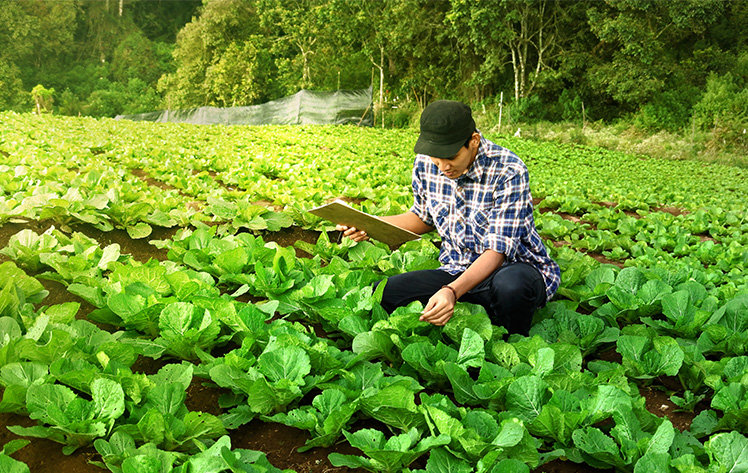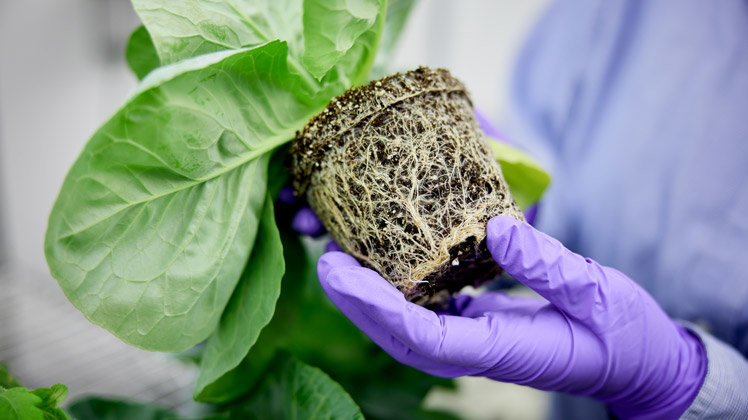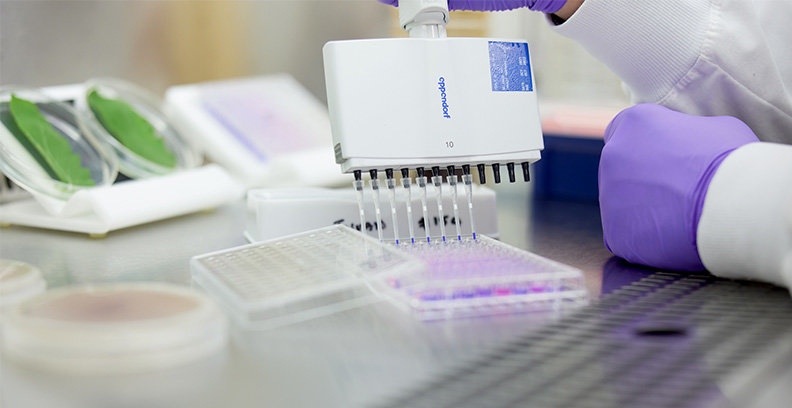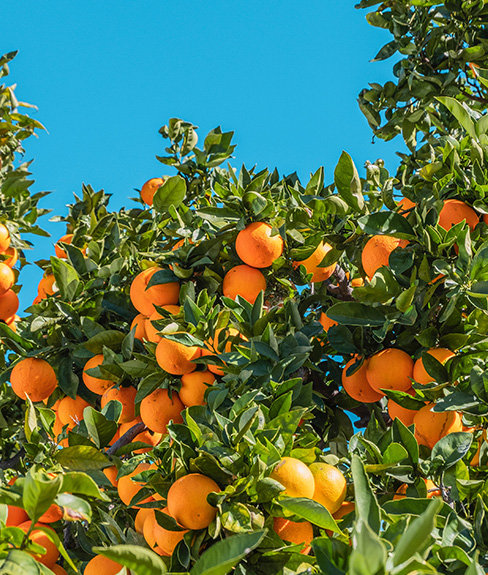Vegetable health
Invaio’s revolutionary biological approach - why it’s better for crops, better for people and better for the environment.
We’re reimagining pest control
Our research into nature-friendly biological solutions to control crop-damaging insects has led to multiple breakthrough discoveries. We’ve created game-changing biological delivery systems that are kind to the planet, safe and uniquely effective. We’re also developing nature-derived bioactives that, combined with our delivery systems, create tailored solutions to target specific pests. All our technologies are designed to improve efficacy and crop health while substantially reducing the use of chemicals.

Solutions for vegetable growers
We are exploring solutions for a range of vegetables and the pests and diseases that damage them. Diseases such as early and late blight in tomatoes and potatoes are common and may become more prevalent as weather patterns change. Lepidopteran pests – such as diamondback moth and fruit borer – are among the major pests affecting vegetable crops.
We aim to enable commercial vegetable growers globally with effective and reliable biological solutions for their toughest pest-control challenges. Our solutions will also allow improved resistance management, providing growers with next generation tools that deliver natural biomolecules, which would otherwise be unsuitable for practical use.
Why is conventional pesticide use in vegetables a problem?
More than a billion pounds of pesticides are used in the United States each year. Despite this, the FAO estimates that, each year, nearly 40 percent of global crop yields are lost due to insects and diseases.
Conventional methods of pest control such as broadcast spraying are becoming less effective. Many insects have now developed pesticide resistance meaning more applications of different types are needed for the same level of control. Additionally, workers doing the spraying can be exposed to pesticides, which can also remain as residues in the environment or in food. Pesticides can also impact beneficial insects; and some can leach into the soil and groundwater.

To date, biological products have brought their own set of issues. This is where we can help. Biological crop protection and biostimulant products often demonstrate good efficacy in the lab or greenhouse but are less stable in field conditions. Our proprietary biological delivery system – programmable Microbe-Derived Particles (MDPs) – improves how natural bioactives are delivered and stabilized in the environment to achieve longer-lasting pest control. MDPs can produce and precisely deliver a wide variety of biologically derived active ingredients, enhancing their stability and efficacy in the field. They can also enable farmers to use lower quantities, improve growing practices and mitigate resistance.

How our MDP technology protects brassicas from the diamondback moth
One of the first solutions from our vegetable health pipeline is designed to control the diamondback moth (DBM), which costs farmers of brassica crops over $4 billion annually worldwide. Its caterpillar is the bane of brassica growers’ lives, destroying young cabbage, kale, broccoli or cauliflower plants and feeding on older plants until they’re unmarketable.
Female diamondback moths can lay 150 or more eggs in their lifetime and produce a new generation every two weeks. Growers typically spray insecticides, which has led to insect resistance to many synthetic and organic solutions. Alternative methods of control are urgently needed.
To meet this challenge, we’re developing a solution using our MDP technology. It enables us to target the diamondback moth larva, and other destructive Lepidopterans pests, overcoming resistance issues and protecting brassica farmers’ yields.
Among its benefits, this solution will offer more treatment timing flexibility and will fit neatly into a treatment rotation of spray programs or combination products. Its new mode of action will provide brassica farmers with an effective new tool to manage existing pesticide resistance and enable them to treat their crops with greater confidence, using fewer chemicals and getting reliable control.
How MDPs work
Our proprietary biological delivery system is programmable at a cellular level. Here’s how it works:

These programmable particles form a robust biological delivery system that can be tailored to tackle a wide range of crop health challenges.

Each tailored solution acts specifically on the pest or disease in question and delivers a stable and predictable outcome to improve crop system health.

After their effective use period is over, they break down quickly in the environment.
You might be interested in

Our first Invaio Citrus Health™ solution is for the treatment of citrus greening (HLB), a highly destructive disease that has devastated the Florida citrus industry.
Citrus health
Corn rootworms feed on corn roots and reduce yields. Populations have adapted and become resistant to conventional methods of control. We are developing a new approach to protecting row crops.
Row crop health
